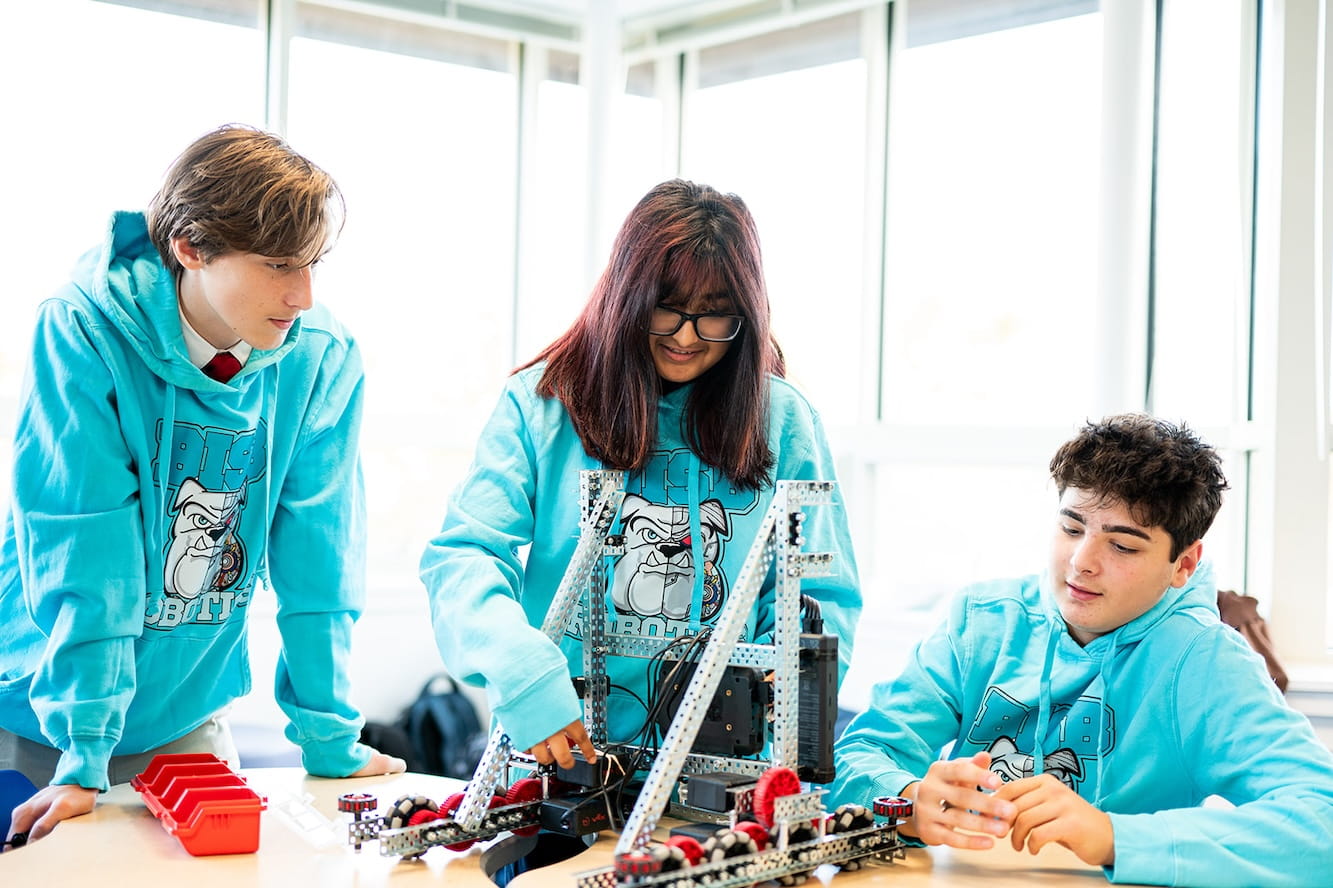We use cookies to improve your online experiences. To learn more and choose your cookies options, please refer to our cookie policy.


Extra-curricular activities are an essential part of the holistic, empowering, and personalized education we offer at BISB.
Not only do our clubs and groups give students the chance to do what they love and discover passions beyond the classroom, they also have a proven, positive impact on health and wellbeing, personal growth, and academic performance.
So, how does taking part in extra-curricular activities boost student success? We look at the research – and share some examples and benefits of extra-curricular activities for our students.
At BISB, extra-curricular activities are woven into the fabric of school life. They complement academic learning, motivate our students, and bring lots of fun and energy to our campus.
Our extra-curricular activities take place outside of scheduled lesson times – typically after school. They include a variety of opportunities, including sports, arts, music, academic enhancement, and social purpose experiences.
Our Middle and High School students also enjoy weekly timetabled enrichment sessions.
Our extra-curricular activity program is broad and balanced, offering an ever-evolving range of opportunities for all ages. Below are some examples of the extra-curricular activities we offer.
· Athletics: We run team and individual sports, from soccer, basketball, and cricket to tennis, and yoga.
· The performing arts: Activities include Bollywood dance, songwriting, and drama clubs, as well as a school orchestra and choirs. We even offer a Taylor Swift club!
· Fine arts: We offer drawing, photography and graphic design clubs, as well as sketchbook and fiber arts groups.
· Academic: Support activities include homework, math, and IB Spanish groups, as well as specialist history, geography, biology, and language clubs.
· STEAM: Tech-focused activities include video game design, Roblox, Scratch programming, and robotics.
· Hobbies: We cater for all interests, offering clubs like Dungeons and Dragons, Taskmaster, baking, current affairs, and Japanese culture.
There are so many benefits linked to taking part in extra-curricular activities. And we see the positive impact they have on students’ academic performance, both short- and long-term.
Studies evidence a strong link between taking part in extra-curricular activities and academic performance. Students who regularly attend clubs, groups, or societies outside of lessons often achieve better grades and have higher educational aspirations.
· Improved grades: Participating in extra-curricular activities develops practical skills such as time management, problem-solving, and critical thinking, which are transferable to their academic studies.
· Higher aspirations: Extra-curricular activities introduce learners to new interests and possibilities, which can inspire them to aim higher and give them a focus when it comes to college courses and degrees.
· Reduced absenteeism: Students who are engaged in school life beyond the classroom tend to be more motivated to attend, contribute to, and commit to their academic studies.
· Increased college enrollment: The skills, experiences, and relationships gained through extra-curricular activities enhance our students’ college applications and increase their chances of securing a place.
Extra-curricular activities also contribute significantly to our students’ personal development, fostering essential life skills and boosting wellbeing.
· Life skills: Extra-curricular activities develop a host of lifelong skills. Playing sports, for example, fosters discipline, perseverance, and teamwork. Artistic activities, like our drama club, stimulate creativity and physical expression. Joining our Model United Nations program, meanwhile, boosts research skills, critical thinking, and communication.
· Social and emotional development: Extra-curricular activities provide opportunities for interaction and collaboration, contributing to our learners’ social and emotional growth. Students learn to form relationships, express themselves, handle different perspectives, and manage conflicts. Their confidence and self-esteem skyrockets, too.
· Wellbeing and mental health: Taking part in extra-curricular activities can reduce anxiety and stress, and help students manage the pressures of academic life. They can create a sense of belonging, too, which boosts mental health and wellbeing.
· Social responsibility: Getting involved in social impact activities develops our students’ global citizenship and exposes them to different perspectives and people. Our older students, for example, expand their worldview by traveling outside of the US on international trips that include Nord Anglia’s life-changing expedition to Tanzania.
We see the positive impact of taking part in extra-curricular activities every day. It’s why we’re so focused on creating a vibrant, high-quality program that engages every student.
The benefits of taking part in extra-curricular activities, of course, are many – as we’ve highlighted here! As well as nurturing personal growth and boosting academic performance, extra-curricular activities can also inspire lifelong passions.
In fact, the skills and talents honed at our clubs – and on local and international trips – often influence the university destinations and lifelong career choices our brilliant students go on to make.